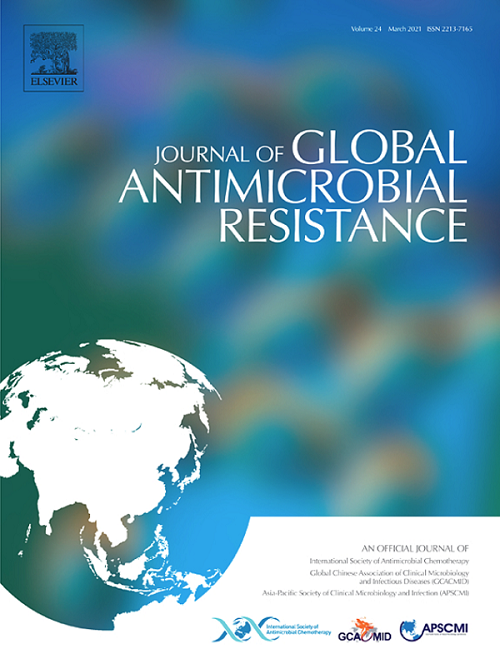Prescription of Antibiotics Among Patients Receiving Oseltamivir with an Influenza Related Diagnosis Over Three Influenza Seasons
IF 3.7
3区 医学
Q2 INFECTIOUS DISEASES
引用次数: 0
Abstract
OBJECTIVE
Antimicrobial resistance is one of the global public health threats. It's been shown that influenza infections can lead to unnecessary antimicrobial use or bacterial pneumonia that requires antimicrobial therapy contributing to antimicrobial resistance. We aimed to demonstrate the utilization of antibiotics among patients receiving oseltamivir with an influenza related diagnosis.
METHOD
Data of patients admitted over three influenza seasons between 3 October 2016 and 20 May 2019 to 6 hospitals across Türkiye were included. Cases with ICD.10 codes J09 to J18 were screened and those who were prescribed oseltamivir were included in the analyses of antibiotic prescriptions. The analysis was performed using the Python programming language.
RESULT
The oseltamivir cohort comprised 12,222 cases, 4924 (40%) of whom were inpatients and 52% were female. The median age was 9 years (IQR, 49 years). The median length of hospital stay was 6 days (IQR, 9.4 days) and 89% of the cases revisited the hospital within ten days. While 5,483 of the patients were prescribed only oseltamivir, 6,739 have been prescribed oseltamivir + antibiotics at least once (Table). There was a clear seasonal trend in influenza diagnosis and antibiotic prescriptions, with peaks occurring annually, while the overall trend remains stable across the time span over three seasons. There was at least an 86% positive relationship between influenza cases and antibacterial prescriptions (Figure).
CONCLUSION
The study findings indicate that influenza can contribute to unnecessary or preventable use of antibiotics and vaccination against influenza is a valuable tool to avoid antimicrobial resistance.
求助全文
约1分钟内获得全文
求助全文
来源期刊

Journal of global antimicrobial resistance
INFECTIOUS DISEASES-PHARMACOLOGY & PHARMACY
CiteScore
8.70
自引率
2.20%
发文量
285
审稿时长
34 weeks
期刊介绍:
The Journal of Global Antimicrobial Resistance (JGAR) is a quarterly online journal run by an international Editorial Board that focuses on the global spread of antibiotic-resistant microbes.
JGAR is a dedicated journal for all professionals working in research, health care, the environment and animal infection control, aiming to track the resistance threat worldwide and provides a single voice devoted to antimicrobial resistance (AMR).
Featuring peer-reviewed and up to date research articles, reviews, short notes and hot topics JGAR covers the key topics related to antibacterial, antiviral, antifungal and antiparasitic resistance.
 求助内容:
求助内容: 应助结果提醒方式:
应助结果提醒方式:


